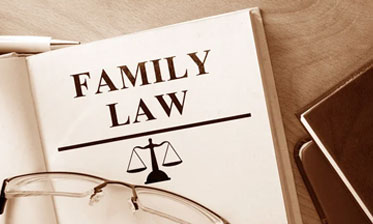
In any legal proceeding, objections can be the difference between winning and losing. For custody cases, where emotions run high and every detail matters, understanding courtroom objections can help you feel more confident and prepared. Whether you’re planning to represent yourself or hire an experienced family law attorney, knowing the most common objections and their role in custody battles is essential.
This guide explains 10 must-know objections with examples specific to custody cases to help you navigate your day in court.
Contents
- 1 What Is an Objection?
- 2 Why Objections Matter in Custody Cases
- 3 The Anatomy of an Objection in a Custody Case
- 4 10 Must-Know Objections for Custody Cases
- 4.1 1. Relevance Objection
- 4.2 2. Hearsay Objection
- 4.3 3. Leading Question Objection
- 4.4 4. Speculation Objection
- 4.5 5. Foundation Objection
- 4.6 6. Improper Opinion Objection
- 4.7 7. Cumulative Objection
- 4.8 8. Argumentative Objection
- 4.9 9. Mischaracterization Objection
- 4.10 10. Vague or Ambiguous Objection
- 5 How Objections Shape the Outcome of Custody Cases
- 6 Why You Need an Experienced Attorney for Your Custody Case
- 7 What Sets Us Apart?
- 8 Real-World Example
- 9 Take Control of Your Custody Case
- 10 Contact Us Today
What Is an Objection?
An objection is a formal protest raised during a court proceeding to challenge evidence or testimony that violates the rules of evidence. Objections are designed to ensure fairness, maintain focus on relevant facts, and prevent undue influence on the judge or jury.
Why Objections Matter in Custody Cases
In custody disputes, objections can stop improper testimony, prevent irrelevant information, and ensure that the court hears only evidence that supports a parent’s case. Judges rely heavily on the evidence presented, so objections play a critical role in shaping their decision.
The Anatomy of an Objection in a Custody Case
- When Are Objections Raised?
Objections can occur during questioning, when evidence is introduced, or even during opening and closing statements if something improper arises. - How Does a Judge Respond?
After an objection is raised, the judge will decide whether to sustain (agree with) or overrule (disagree with) the objection. - Sustained vs. Overruled:
- A sustained objection means the issue is excluded or stopped.
- An overruled objection means the issue is allowed to proceed.
- How to Raise Objections:
- Most people imitate the passionate Hollywood method of objecting by standing up quickly and shouting OBJECTION! The judge will most likely not approve of this and will lean to overruling your objection because of how it was raised.
- Instead, remain seated and firmly state “Objection” and wait for the judge to acknowledge you to state the reason for your objection. Speak in a confident and respectful tone with the judge.
10 Must-Know Objections for Custody Cases
Below are the most common objections you might encounter in a custody case, along with examples tailored to family law disputes.
1. Relevance Objection
- What It Means: Evidence or testimony must be directly related to the custody matter.
- Example in Custody Cases: Opposing counsel asks about a parent’s speeding ticket from 10 years ago, which has no bearing on their ability to care for their child.
- Why It Matters: This objection keeps the focus on issues that affect the child’s best interests, not unrelated details.
- Bonus Tip: Be careful of the child support questions during child custody cases. General rule of thumb is that the payment of child support is not relevant to child custody.
2. Hearsay Objection
- What It Means: Statements made outside the courtroom cannot be used as evidence unless they meet specific exceptions.
- Example in Custody Cases: A witness testifies, “The neighbor told me the parent leaves the child alone at night.”
- Why It Matters: Hearsay is often unreliable and could unfairly influence the judge’s decision. Typically, the neighbor needs to be present and available to testify in order for this statement to be admitted.
- Bonus Tip: Letters or affidavits written by someone not in court are also generally considered hearsay and you should object to it.
3. Leading Question Objection
- What It Means: An attorney cannot ask questions that suggest the answer during direct examination.
- Example in Custody Cases: “Isn’t it true that you always attend your child’s school events?”
- Why It Matters: Leading questions can unfairly influence a witness’s response, particularly in emotionally charged custody cases.
- Bonus Tip: Leading questions are allowed when the attorney is asking a witness they did not call to the stand. This is called cross-examination.
4. Speculation Objection
- What It Means: Witnesses can only testify about facts they directly know, not guesses or assumptions.
- Example in Custody Cases: A witness says, “I think the parent is thinking about moving out of state and taking baby.”
- Why It Matters: Speculative testimony can mislead the court and create unnecessary doubt about a parent’s intentions. Here the witness is talking about what someone else was thinking. Any time a witness says “I think”, then a red flag should be raised in your mind.
5. Foundation Objection
- What It Means: Evidence must be properly introduced and connected to the case before it can be used.
- Example in Custody Cases: A photograph of a messy house is submitted without any explanation of when it was taken or who took it.
- Why It Matters: This objection prevents evidence from being used without context, ensuring fairness.
- Bonus Tip: The proper way to get the photograph in would be to ask a similar chain of questions to the following: 1) Who took the photo? 2) When was it taken? 3) What does the photo depict? 4) Has the photo been altered in any way since the time it was taken? 5) Does the photo accurately depict what you saw that day? 6) Will it help you illustrate your testimony today if this photo is shown to the Court?
6. Improper Opinion Objection
- What It Means: Only experts can give opinions on specialized matters; lay witnesses must stick to facts.
- Example in Custody Cases: A friend testifies, “I believe the parent is emotionally unfit to care for their child.”
- Why It Matters: Non-expert opinions can unfairly sway the court and undermine the objectivity of the case. Ask yourself, does the witness have the education and professional experience to make this opinion?
7. Cumulative Objection
- What It Means: Repetitive evidence or testimony is unnecessary and can waste the court’s time.
- Example in Custody Cases: Three witnesses all testify about the same argument between the parents. Or, parent brings ten different character witnesses to say the same thing that they are a good parent.
- Why It Matters: Cumulative evidence can distract from the core issues in the custody dispute and take up the court’s time. Judges will normally allow one or two character witnesses but their testimonies need to be based from different experiences.
8. Argumentative Objection
- What It Means: Attorneys cannot badger or argue with witnesses during questioning.
- Example in Custody Cases: “Why didn’t you try harder to prevent this custody dispute?”
- Why It Matters: Argumentative questions can create unnecessary conflict and disrupt the courtroom process. This is one of those “you know it when you see it” objections. One time I had an opposing attorney ask my client during cross-examination “when are you going to admit that you don’t even care about your child?” Judge sustained my objection and gave opposing counsel a glare. This question was clearly asked to make my client mad and flare their emotions.
- Bonus Tip: I almost always see these kinds of questions by pro se (unrepresented) parties because of all the emotions that have built up. Judges do not like these questions so be careful to avoid them when questioning the witnesses. You do not want to turn the judge against you.
9. Mischaracterization Objection
- What It Means: Misrepresenting a witness’s testimony or evidence is not allowed.
- Example in Custody Cases: An attorney says, “You admitted to neglect,” when the parent simply said they needed help balancing work and childcare.
- Why It Matters: This objection prevents misleading narratives from influencing the court’s decision.
10. Vague or Ambiguous Objection
- What It Means: Questions must be clear and specific.
- Example in Custody Cases: “Do you always act like this around your child?”
- Why It Matters: Ambiguous questions can confuse witnesses and lead to irrelevant or inaccurate answers.
How Objections Shape the Outcome of Custody Cases
Objections are more than just courtroom drama—they serve as tools to:
- Protect Your Rights: Stop unfair testimony or evidence.
- Strengthen Your Case: Keep the focus on relevant facts that support your parenting abilities.
- Maintain Courtroom Decorum: Ensure the proceedings are fair and orderly.
Strategic use of objections by an experienced attorney can safeguard your case and highlight weaknesses in the opposing side’s arguments.
Why You Need an Experienced Attorney for Your Custody Case
Handling objections effectively requires a deep understanding of courtroom rules and experience in family law. At Ley Law, we know how to use objections strategically to protect our clients’ interests.
What Sets Us Apart?
- Communication in Custody Law: We are prepared for trial because we have open lines of communication for our clients to speak directly with the attorneys.
- Client-Centered Approach: We prioritize your goals and the best interests of your child. We swore oaths to zealously advocate for you when we became attorneys and we care about what you care about.
- Proven Track Record: Ask around, read our reviews, and come meet with us. You will find out that Ley Law attorneys are well-respected among our colleagues, judges, and clients.
Real-World Example
In a recent case, opposing counsel wanted to introduce messages taken from Facebook DMs. Judge ruled that opposing counsel could not authenticate the messages and that the messages contained hearsay without exception. These messages would have unfairly depicted our client in a negative light if it was allowed in.
Take Control of Your Custody Case
Custody battles are challenging, but understanding courtroom objections can help you feel more prepared. Whether you’re facing a contested custody dispute or seeking to protect your parental rights, Ley Law is here to help.
Contact Us Today
Schedule a consultation to discuss your case and learn how we can guide you through every step of the process.
Call our Greenville office at 252-612-0007 or our Goldsboro office at 919-918-0028.


Clark Jones Author
G. Clark Jones, CEO of Ley Law, has built a distinguished career in Criminal Defense and Family Law across Eastern North Carolina, known for his dedication to clients and his commitment to achieving justice. Graduating Magna Cum Laude with a Bachelor of Science in Family Community Services from East Carolina University in December 2016, Clark pursued his Juris Doctor degree at J. Reuben Clark Law School, Brigham Young University, completing it in December 2019.





